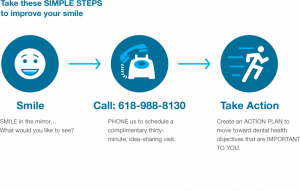What Happens When You Eat Without Teeth or Dentures
Losing teeth is a very common occurrence in life, and senior dental care is only increasing in demand. What commonly occurs with patients that have lost teeth and have yet to acquire dentures or another form of dental implants, is an attempt to eat without dentures. However, eating without teeth or another form of substitute can be detrimental to your oral health.
Damage to your Gums and Jaw
As most senior dental care experts will tell you, chewing without teeth is not a good idea. A set of natural teeth can bite down with a force of over 200 pounds, while dentures bite down with a force of about 50 pounds. In order to get enough force to bite into food, your jaw and gums will have to work significantly harder. This can strain them to the point of severe injury. You may want to consume soft food until you acquire an alternative. However, this should only be done for a very limited time. Even foods that don’t require much chewing can cause infections or disease if continuously consumed without teeth. Damage doesn’t just stop at the gums too. Eating without dentures or implants can weaken your jaw due to an imbalance of pressure, which can cause fractures.
Senior Dental Care: Digestive Problems
Did you know that eating without teeth can actually damage your gastrointestinal system? Digestion is a highly advanced process involving multiple organs working simultaneously. The first and possibly most important step is the mouth. Senior dental care experts have found that failing to properly break down food through chewing can significantly impact your digestive health. If food is too big to be broken down, you may be at risk for incomplete digestion. The resulting symptoms are indigestion, bacterial growth, and infection.
Even eating heavily processed food that doesn’t require chewing isn’t actually better for you. Your body will still fail to fully process the nutrients without teeth. Chewing is connected with the movement of saliva and indicates to the digestive system to begin to prepare itself. This is done by the stimulation of taste receptors, which signals to the rest of the body to begin acquiring nutrients and disposing of waste.
Have more questions?
Contact the senior dental care experts at Tim Loughran Dentistry or check us out on Facebook! Our team of dental professionals will assist you in getting the services and expertise you need to protect your health, and get you a smile you’ll love. If you have any questions or want to set up an appointment, reach out today! We are here to serve you.







